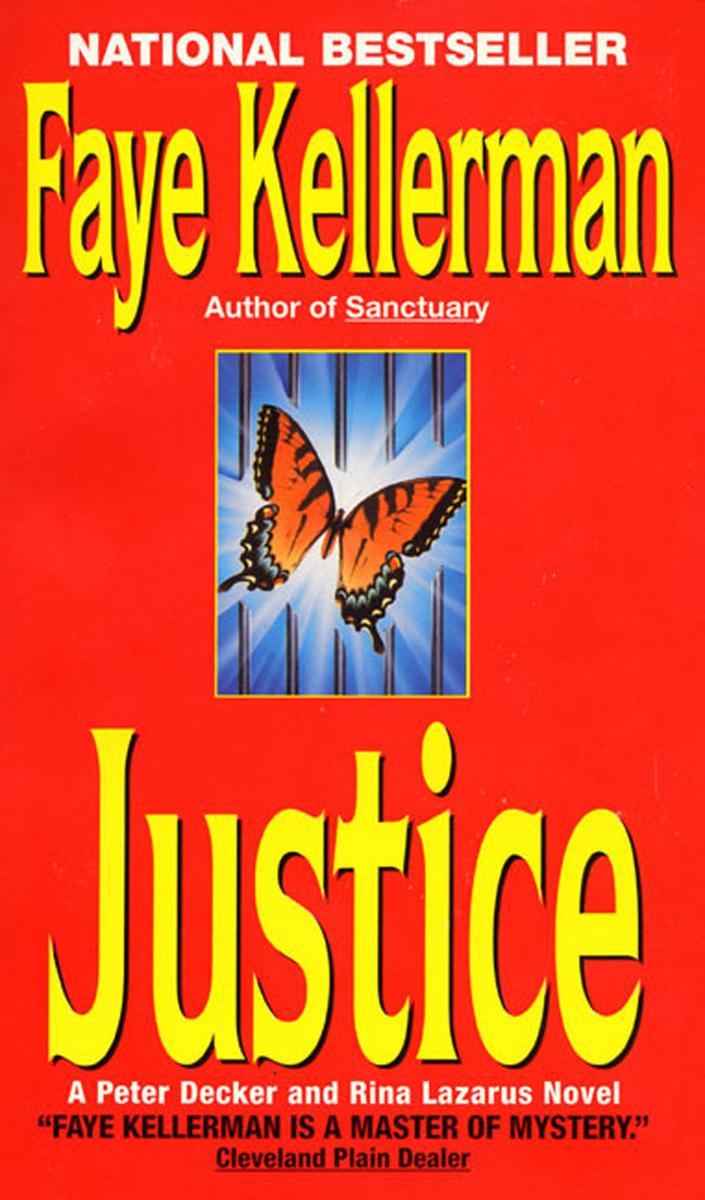
Justice
¥70.10
The cruel and bizarre slaying of a beautiful teen leads Detective Decker into the dark heart of an exotic subculture: the seamy, sometimes violent world of Southern California's rootless, affluent youth. But even the confession of a disturbed kid with cold "killer eyes" cannot soothe Decker's inner torment. For he knows in his gut this crime goes much deeper and higher than anyone expects -- and that true justice, brutal and complete, has yet to be done.
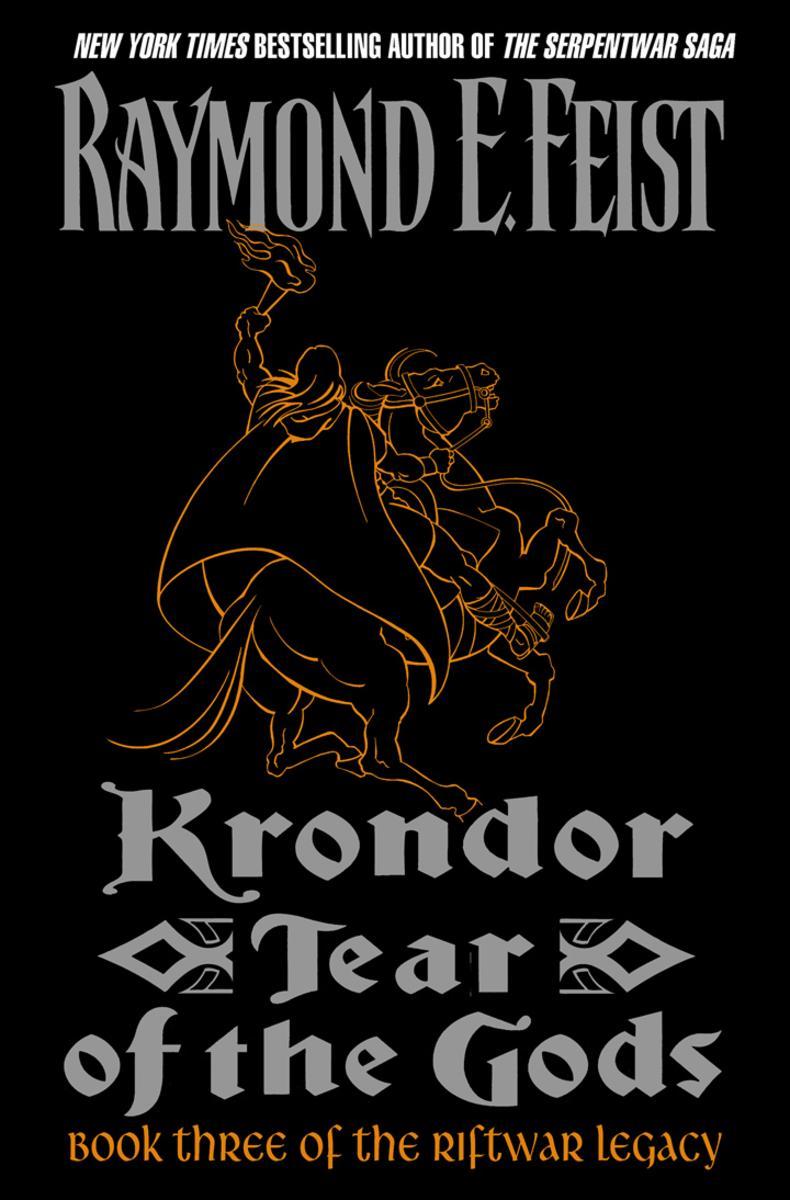
Krondor: Tear of the Gods
¥55.31
Return now to a kingdom in constant peril; a land magical, scarred, and wondrous, where great heroes rise up from adversity to battle fearsome enemies who covet the riches within its borders. New York Times bestselling author Raymond E. Feist -- one of the world 's preeminent fantasists -- continues his extraordinary Riftwar Legacy with a sweeping tale of conflict, trial, and grim necessity, as the forces of good join together to staunch the golden lifeblood flowing from the pierced heart of Midkemia. The vile sorcerer Sidi plans to strike the kingdom a fatal blow, setting his creature, the murderous pirate Bear, upon the high seas in pursuit of the vessel that is transporting Midkemia's most holy object: the Tear of the Gods. It is from this miraculous stone that all magic power is believed to flow. And if the Tear becomes the mage's trinket, the future will hold naught but terror, death, and unending night. For Squire James, Lieutenant William, and the able magician Jazhara, the race is on to rescue the remarkable artifact from the bloodthirsty, unpredictable Bear and his despicable master who would use it to bring catastrophe down upon the world. But it will take greater-than-human swiftness. cunning, courage, and skill for the three to prevail. And the flight of her most peerless defenders will leave Krondor more vulnerable than ever to the terrible ambitions of the depraved. For the mysterious criminal known as the Crawler is preparing to wreak bloody havoc to fulfill his dastardly secret agenda. Once again the sewers of Krondor teem with assassins and monsters as the hour of destiny nears. The fate of an imperiled world is in flux, as all manner of dark creatures are gathered for one unspeakable purpose: to breed the chaos that will hasten the destruction of Squire James and his brave companions...and bring about the total corruption of the Tear of the Gods.

The Land of Mango Sunsets
¥88.56
Miriam Swanson is thoroughly provoked and she doesn't mind letting you know. Twenty years ago her husband Charles, a powerful attorney with one of the last remaining white shoe law firms in New York, dumped her for a younger woman nearly half her age. Obviously it happens all the time and it's not exactly news, but what's fascinating is to watch Miriam evolve from pathetic to spectacular. Perfectly proper Miriam's great metamorphosis results from the arrival of a little red neck school teacher, Liz, from Nowhere, Alabama. Liz is Miriam's tenant along with Kevin, a 50 something gay man who is Miriam's best friend. Liz is everything that Miriam is not: young and thin. They constantly clash. Then finally, she meets a man named Harrison who changes her into a gal named Mellie. Miriam spins out from the revolving door of her postured life as a Manhattan quasi socialite while she thirsts, no, starves for recognition. How did she become what she hates the most and what does she endure to realize itAnd where are the answersIt takes a few spins, dips and one spectacular fall until Miriam gets her head on straight. Then in a whoosh she's off to see her mother in the enchanted and mysterious land of Sullivans Island, deep in the Lowcountry of South Carolina.

Hissy Fit
¥94.10
“Laced with humor and a sense of place that oozes the aroma of magnolia blossoms.” —Atlanta Journal-Constitution “[A] Southern-fried romp.” —Entertainment Weekly Whether it’s a mystery, sassy women’s fiction, or a combination of the two, New York Times bestseller Mary Kay Andrews always gives her fans a read to remember. And now she’s throwing a Hissy Fit, in the best possible sense. A delicious tale of revenge and renovation, Hissy Fit tells of a wronged spitfire who’s determined to see that the no-good lowdown, lying, cheating varmint of an ex-fiancé who ruined her life and her business gets the comeuppance he so richly deserves…even as she struggles to revitalize a broken-down antebellum mansion for a hunky, if slightly odd, local businessman. If you like the novels of Fannie Flagg, Jennifer Crusie, Adriana Trigiani, and Emily Giffin, or are a devoted follower of Rebecca Wells or Jill Conner Browne’s Sweet Potato Queens, then Mary Kay’s Hissy Fit is not to be missed.

The Horses
¥42.03
Jim Glass' long-sought peace is shattered when the ex-soldier and ex-Ranger discovers six of his corralled horses dead, their throats slit. Though he dreads doing so, he'll strap on his weapons and go hunting for the culprit—because someone capable of such a foul, thoughtless killing is capable of anything. The dusty town of Domingo has been targeted by a pair of blood-crazed brothers and their Texas cohorts with robbery, murder and mayhem on their minds, and that's where Glass will make his stand—even though his only support is an old Indian named Hairy Legs and an over-the-hill lawman named Trout. Because a home's the one thing a man's got that's worth fighting—and dying—for.
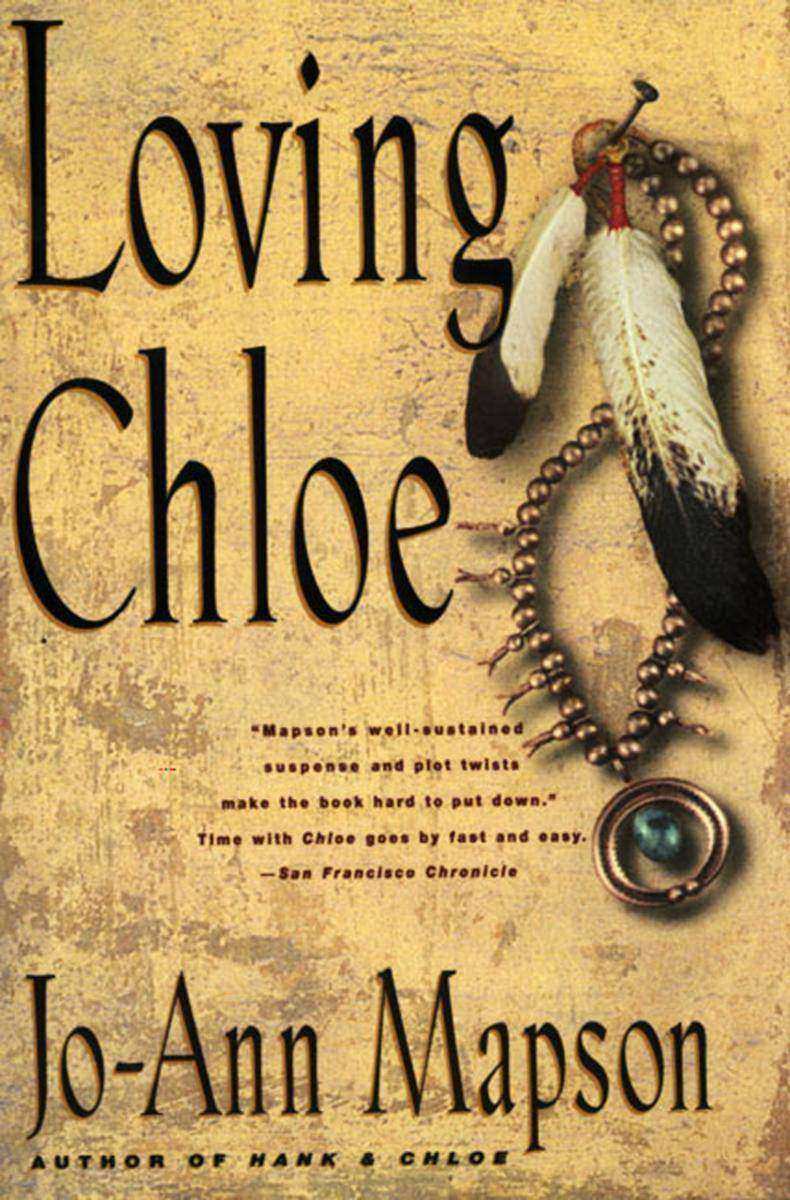
HarperCollins e-books
¥77.49
When 34-year-old Chloe Morgan appears on Hank Oliver's doorstep in Cameron, Arizona, she arrives with more than her old white German shepherd, Hannah, and a rambunctious horse in tow. Chloe is pregnant with Hank's child, and she's as tough-talking and vulnerable, skittish and tender as when last we saw her, in Jo-Ann Mapson's acclaimed first novel Hank & Chloe. Loving Chloe takes up where the earlier novel leaves off. As Chloe and Hank settle somewhat uneasily into domesticity in his grandmother's cabin, a local Navajo legend named Junior Whitebear, an artist whose work has been praised by the eastern commercial establishment, returns home to collect his father's ashes and renew his own spirit after years spent in the art world fast lane. When Junior arrives at the reservation, he doesn't expect to find a son he fathered unwittingly nine years ago with Corinne Johnson; nor is he looking to fall in love with newcomer Chloe Morgan and to deliver her baby girl. Both events change his life forever, not to mention the lives of those around him. A passionate love story, Loving Chloe explores the emotional complexity of a love triangle with sympathy, humor and compassion. Sexual longing, the bonds of family and nagging questions of identity with far-reaching consequences making Loving Chloe a rich, rewarding work of fiction. Set against the spectacular beauty of the American Southwest, Jo-Ann Mapson's new novel is the page-turning sequel to Hank & Chloe that readers have eagerly been awaiting.

Lunch Lessons
¥83.93
Remember how simple school lunches used to beYou'd have something from every major food group, run around the playground for a while, and you looked and felt fine. But today it's not so simple. Schools are actually feeding the American crisis of childhood obesity and malnutrition. Most cafeterias serve a veritable buffet of processed, fried, and sugary foods, and although many schools have attempted to improve, they are still not measuring up: 78 percent of the school lunch programs in America do not meet the USDA's nutritional guidelines. Chef Ann Cooper has emerged as one of the nation's most influential and most respected advocates for changing how our kids eat. In fact, she is something of a renegade lunch lady, minus the hairnet and scooper of mashed potatoes. Ann has worked to transform cafeterias into culinary classrooms. In Lunch Lessons, she and Lisa Holmes spell out how parents and school employees can help instill healthy habits in children. They explain the basics of good childhood nutrition and suggest dozens of tasty, home-tested recipes for breakfast, lunch, and snacks. The pages are also packed with recommendations on how to eliminate potential hazards from the home, bring gardening and composting into daily life, and how to support businesses that provide local, organic food. Yet learning about nutrition and changing the way you run your home will not cure the plague of obesity and poor health for this generation of children. Only parental activism can spark widespread change. With inspirational examples and analysis, Lunch Lessons is more than just a recipe book—it gives readers the tools to transform the way children everywhere interact with food.

The Genius Files #3: You Only Die Twice
¥44.73
The most dangerous road trip in history continues in the wacky third book of Dan Gutman's New York Times bestselling The Genius Files series, following twins Coke and Pepsi McDonald as they dodge nefarious villains all the way to Graceland. With the real-kid humor that has earned him millions of readers around the world, and featuring all new weird-but-true locations around America, this third book in the New York Times bestselling Genius Files series is one wild ride!The genius twins Coke and Pepsi have narrowly escaped a vat of a Spam, a pit of boiling fry oil, and a score of crazed adults all bent on killing them. But just when they thought they were safe, their arch nemesis Dr. Herman Warsaw reappeared, engaged to their Aunt Judy! Whoa—didn't he die already?! Now, as the twins continue their family road trip from Washington D.C. through the South, it will take every bit of their genius abilities to outwit their wacky enemies. It doesn't help that their parents remain totally oblivious! When they finally get to Graceland, Elvis's home in Memphis, Tennessee, Coke and Pepsi come to an explosive conclusion you'll have to read to believe!

The Rising
¥60.87
The race for survival comes to a thrilling conclusion in the heart-stopping finale to the Darkness Rising trilogy, from #1 New York Times bestselling author Kelley Armstrong.Things are getting desperate for Maya and her friends. Hunted by the powerful St. Clouds and now a rival Cabal as well, they're quickly running out of places to hide.All they have is the name and number of someone who might be able to give them a few answers. Answers to why they're so valuable, and why their supernatural powers are getting more and more out of control. But Maya is unprepared for the truths that await her. And like it or not, she'll have to face down some demons from her past if she ever hopes to move on with her life. Because Maya can't keep running forever.With all the twists, thrills, and romance that have made Kelley Armstrong an international bestseller, plus the surprising return of some fan-favorite characters, The Rising will hold you under its spell long after its breathtaking end.

Story's End
¥44.85
Enter the magical land of Story in this sequel to Storybound, perfect for fans of Inkheart, The School for Good and Evil, and classic fantasy tales like Ella Enchanted and The Neverending Story. Kids who love fairy tales, dragons, magic, and more will be enchanted by Una Fairchild's unforgettable adventure in Story's End.Story is a land of dashing Heroes, dastardly Villains, and epic quests—and once upon a time, a noble King. But the King vanished so long ago that even the memory of him is lost. Now a cruel Enemy plots to rewrite Story's future, and an ordinary girl named Una Fairchild may be the only one who can stop him. As Una and her friends Peter and Indy race to defeat the Enemy, their quest will take them deep into the secrets of Story's past . . . and Una's own mysterious ties to this fairy-tale kingdom and its long-forgotten King.Discover the richly imagined world, spirited cast of storybook characters, and timeless appeal of Story's End, which closes the book on Una's adventure "with an all-out bang" (ALA Booklist).
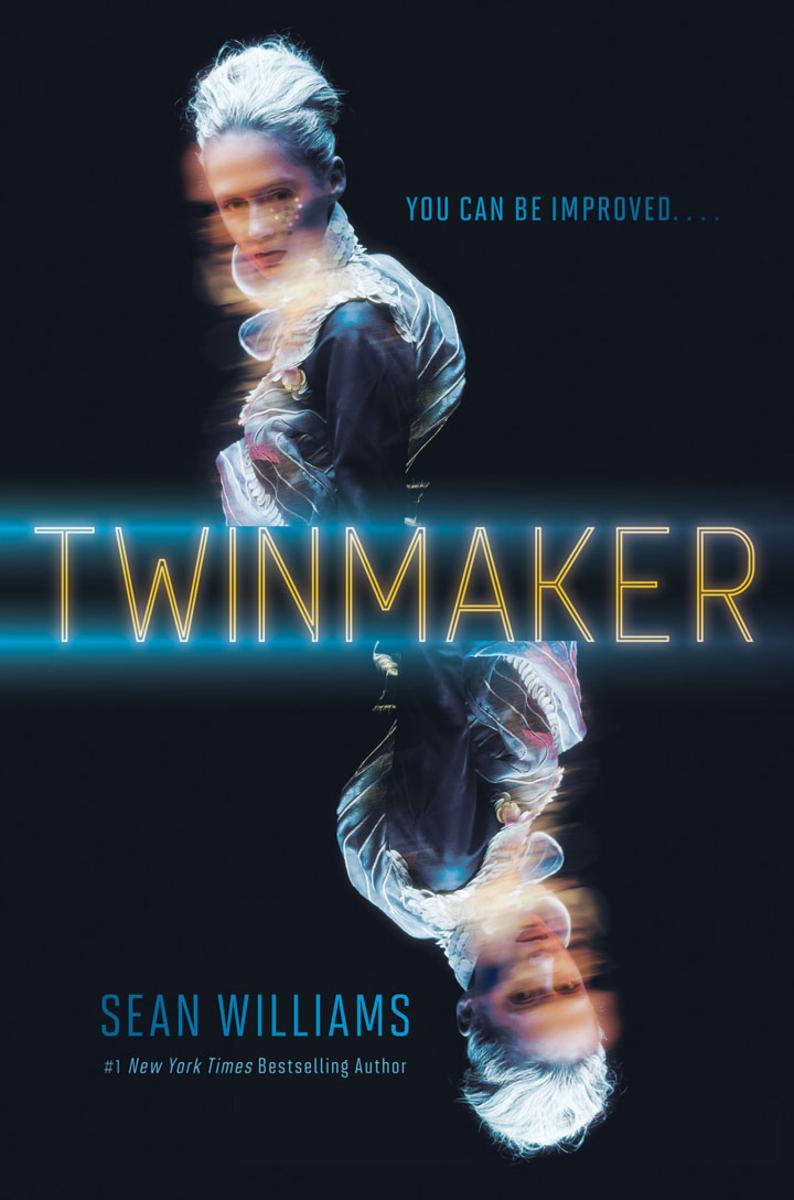
Twinmaker
¥99.65
M. T. Anderson meets Cory Doctorow in this teen debut from #1 New York Times bestseller Sean Williams, who also coauthors the Troubletwisters series with Garth Nix.When a coded note promises improvement—the chance to change your body any way you want, making it stronger, taller, more beautiful—Clair thinks it's too good to be true, but her best friend, Libby, falls into a deadly trap.With the help of the school freak and a mysterious stranger, Clair races against the clock and around the world to save Libby, even as every step draws her deeper into a deadly world of cover-ups and conspiracies.Action and danger fuel this near-future tale of technology, identity, and the lengths one girl will go to save her best friend.

Crashland
¥101.00
M. T. Anderson meets Cory Doctorow in the exciting sequel to Twinmaker, from #1 New York Times bestseller Sean Williams, who also coauthors the Troubletwisters series with Garth Nix.Clair and Jesse have barely been reunited when the world is plunged into its biggest crisis since the Water Wars. The d-mat network is broken. The world has ground to a halt. People are trapped, injured, dying. It's the end of the world as Clair knows it—and it's partly her fault. Now she's been enlisted to track down her friend Q, the rogue AI who repeatedly saved her life—and who is the key to fixing the system. Targeted by dupes, abandoned by her friends, and caught in a web of lies that strike at the very essence of who she is, Clair quickly finds powerful and dangerous allies. But if she helps them, will she be leading her friend straight into a trapCaught between pro- and anti-d-mat philosophies, in a world on the brink of all-out war, Clair must decide where she stands—and who she stands with, at the end.
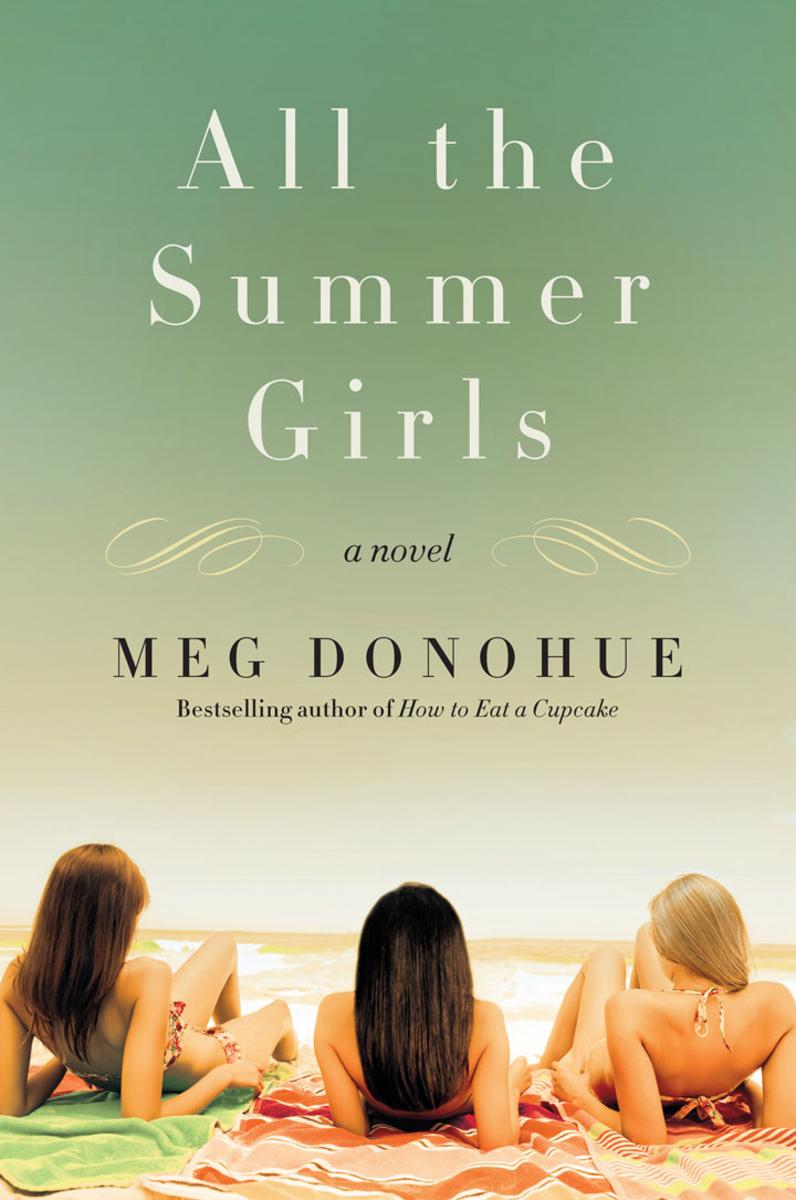
All the Summer Girls
¥83.03
In Philadelphia, good girl Kate is dumped by her fiancé the day she learns she is pregnant with his child. In New York City, beautiful stay-at-home mom Vanessa finds herself obsessively searching the Internet for news of an old flame. And in San Francisco, Dani, an aspiring writer who can't seem to put down a book—or a cocktail—long enough to open her laptop, has just been fired?.?.?.?again.In an effort to regroup, Kate, Vanessa, and Dani retreat to the New Jersey beach town where they once spent their summers. Emboldened by the seductive cadences of the shore, the women begin to realize just how much their lives, and friendships, have been shaped by the choices they made one fateful night on the beach eight years earlier—and the secrets that now threaten to surface.

Thankful
¥71.94
From bestselling author Shelley Shepard Gray comes a tender story of faith, family, and finding love with the Amish of SugarcreekChristina Kempf has always felt that God chose Aden Reese to be her husband. When they were children, Aden was there to save her when she fell through a patch of thin ice, and he's been by her side ever since. After his parents died in a car accident ten years ago, the Kempfs raised Aden as one of their own, and everyone sees Aden and Christina as brother and sister. But Christina has never given up hope that Aden will one day see her as the perfect woman for him . . . and ask her to be his wife. Despite what his heart wants, Aden can't find it in himself to repay the Kempfs' kindness with an admission that his feelings for Christina have only ever been romantic. But when she's pressured by her parents to court more broadly, Christina begins to accept the attentions of Sugarcreek's young men.Now Aden must make a choice. Will he stand by and watch the love of his life slip awayOr will he risk losing the love and trust of the family he holds dear to tell Christina how he truly feels?
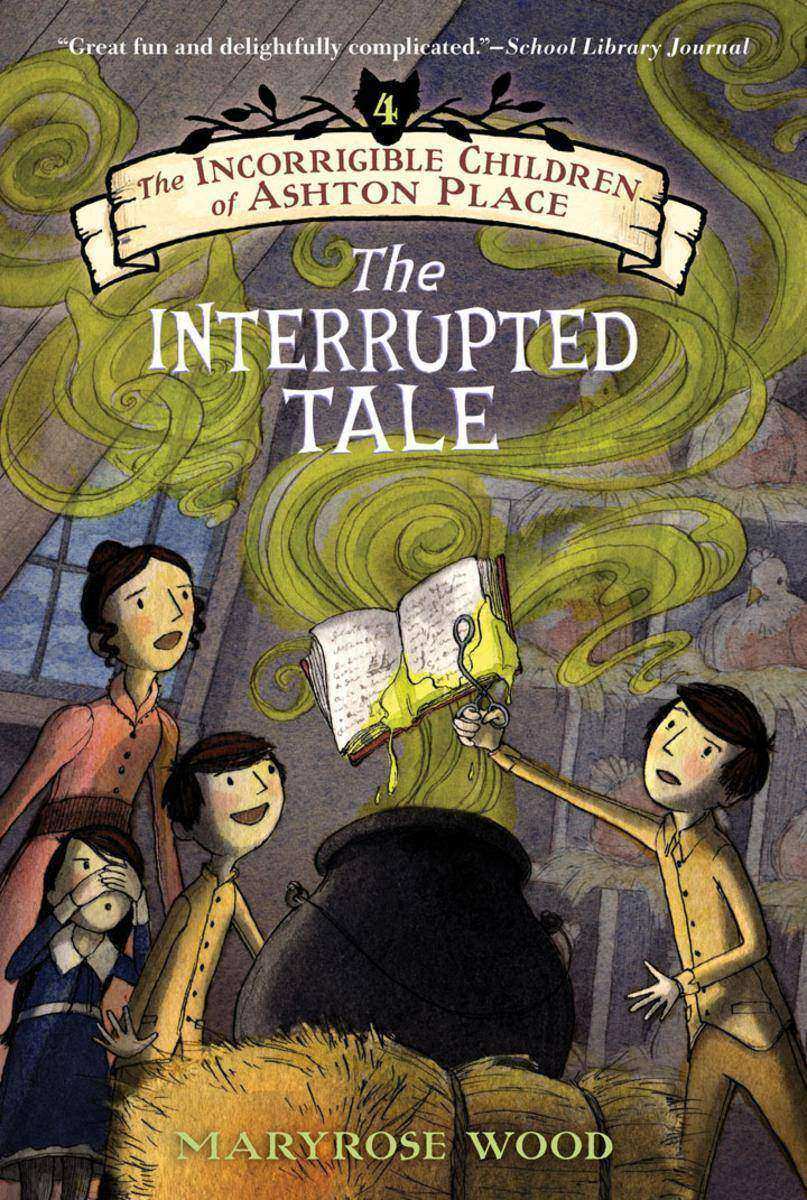
The Incorrigible Children of Ashton Place: Book IV
¥38.72
For fans of Lemony Snicket’s Series of Unfortunate Events and Trenton Lee Stewart’s Mysterious Benedict Society comes the fourth book in the Incorrigible Children of Ashton Place, the acclaimed and hilarious Victorian mystery series by Maryrose Wood.In The Interrupted Tale, Miss Penelope Lumley receives an invitation to speak at the annual Celebrate Alumnae Knowledge Exposition (or CAKE) at the Swanburne Academy for Poor Bright Females. Optoomuchstic as ever, Penelope hopes to give her CAKE talk, see some old friends, and show off the Incorrigible children to Miss Mortimer, but instead she finds her beloved school in an uproar.And when Penelope is asked by the Swanburne Academy board of trustees to demonstrate the academic progress of her three wolfish students so the board can judge the true worth of a Swanburne education, the future of her alma mater—and of her job as governess to the Incorrigibles—hangs in the balance.

A Poisoned Season
¥78.32
London's social season is in full swing, and Victorian aristocracy is atwitter over a certain gentleman who claims to be the direct descendant of Louis XVI and Marie Antoinette. Adding to their fascination with all things French, an audacious cat burglar is systematically stealing valuable items that once belonged to the ill fated queen. But things take a dark turn. The owner of one of the pilfered treasures is found murdered after the theft is reported in the newspapers, and the mysterious thief develops a twisted obsession with Lady Emily Ashton. It takes all of Lady Emily's wit and perseverance to unmask her stalker and ferret out the murderer, while faced with a brewing scandal that threatens both her reputation and her romance with the dashing Colin Hargreaves.

The Nymphos of Rocky Flats
¥94.10
The first and only vampire book to be declassified by the federal government . . .Felix Gomez went to Iraq a soldier. He came back a vampire. Now he finds himself pulled into a web of intrigue when an old friend prompts him to investigate an outbreak of nymphomania at the secret government facilities in Rocky Flats. He'll find out the cause of all these horny women or die trying! But first he must contend with shadowy government agents, Eastern European vampire hunters, and women who just want his body . . .Skewering sexual myths, conspiracy fables, and government bureaucracy, The Nymphos of Rocky Flats reveals the bizarre world of the undead with a humorous slant and a fresh twist.

Shadow of a Dark Queen
¥62.90
A dread darkness is descending upon a great land called Midkemia—a powerful and malevolent race of monsters that has slipped through a hole in the dimensions. And two unlikely young heroes—a bastard heir denied his birthright and an irrepressible scoundrel with a penchant for thievery—must take up arms in the struggle to protect their besieged world...two friends chosen by Destiny to stand at the fore of the battle that is to come against the gargantuan reptile army of the terrible Emerald Queen.

Shadow Ranch
¥83.93
The impact of four-year-old Spencer's death has rocked the Carpenter family. For Lainie, the loss of her son is unbearable, and now both her marriage and her very sanity are threatened. Her guitar-obsessed, slacker brother Russell isn't doing very well either, and his own love relationship is rapidly coming undone. Then there's Bop, her fierce and crusty 80-year-old grandfather. When he falls in love with a retired stripper, their earthy romance touches each of the Carpenters' lives in unexpected ways.

Sharpe's Escape
¥95.11
It is 1810, and in Napoleon's determination to conquer Portugal—and push the British back to the sea—he sends his largest army yet across the Spanish frontier. But between the Portuguese border and Napoleon's seemingly certain victory are twoobstacles—a wasted land, stripped of food by Wellington's orders, and Captain Richard Sharpe.But Sharpe is in trouble. The captain of the Light Company is threatened from inside and out: First by an incompetent British officer, who by virtue of family connections is temporarily given Sharpe's command. An even greater danger is posed by two corrupt Portuguese brothers—Major Ferreira, a high-ranking officer in the army of Portugal, and his brother, nicknamed "Ferragus" (after a legen-dary Portuguese giant), who makes no claims to respectability, preferring instead to rule by crude physical strength and pure intimidation. Together the brothers have developed a devious plot to ingratiate themselves with the French invaders who are threatening to become Portugal's new rulers.Sharpe's interference in the first stage of their plan earns the undying enmity of the brothers. Ferragus vows revenge and plots a merciless trap that seems certain to kill Sharpe and his intimates—battle-tested ally Sergeant Harper, the Portuguese officer Jorge Vicente, and a prickly but lovely English governess. As the city of Coimbra is burned and pillaged, Sharpe and his companions plot a daring escape, ensuring that Ferragus will follow on toward Lisbon, into the jaws of a snare laid by Wellington—the massive lines of Torres Vedras, a daring and ingenious last stand against the invaders. There, beneath the British guns, Sharpe is reunited with his shattered but grateful company, and meets his enemies in a thrilling and decisive fight.Sharpe's Escape emphatically reaffirms Bernard Cornwell's status as "perhaps the greatest writer of historical adventure novels today" (Washington Post); its climactic battle scenes and evocative re-creation of history sweep the reader off the page and into the action and drama of nineteenth-century warfare.

Sharpe's Havoc
¥84.16
Lieutenant Richard Sharpe finds himself fighting the ruthless armies of Napoleon Bonaparte as they try to bring the whole of the Iberian Peninsula under their control. Napoleon is advancing fast through northern Portugal, and no one knows whether the small contingent of British troops stationed in Lisbon will stay to fight or sail back to England. Sharpe, however, does not have a choice: He and his squad of riflemen are on the lookout for the missing daughter of an English wine shipper when the French onslaught begins and the city of Oporto becomes a setting for carnage and disaster.Stranded behind enemy lines, Sharpe returns to his mission to find Kate Savage. Sharpe's position on enemy grounds is precarious, and his search is further complicated by a mysterious and threatening Englishman, Colonel Christopher, who has his own ideas on how the French can be driven from Portugal.




 购物车
购物车 个人中心
个人中心



